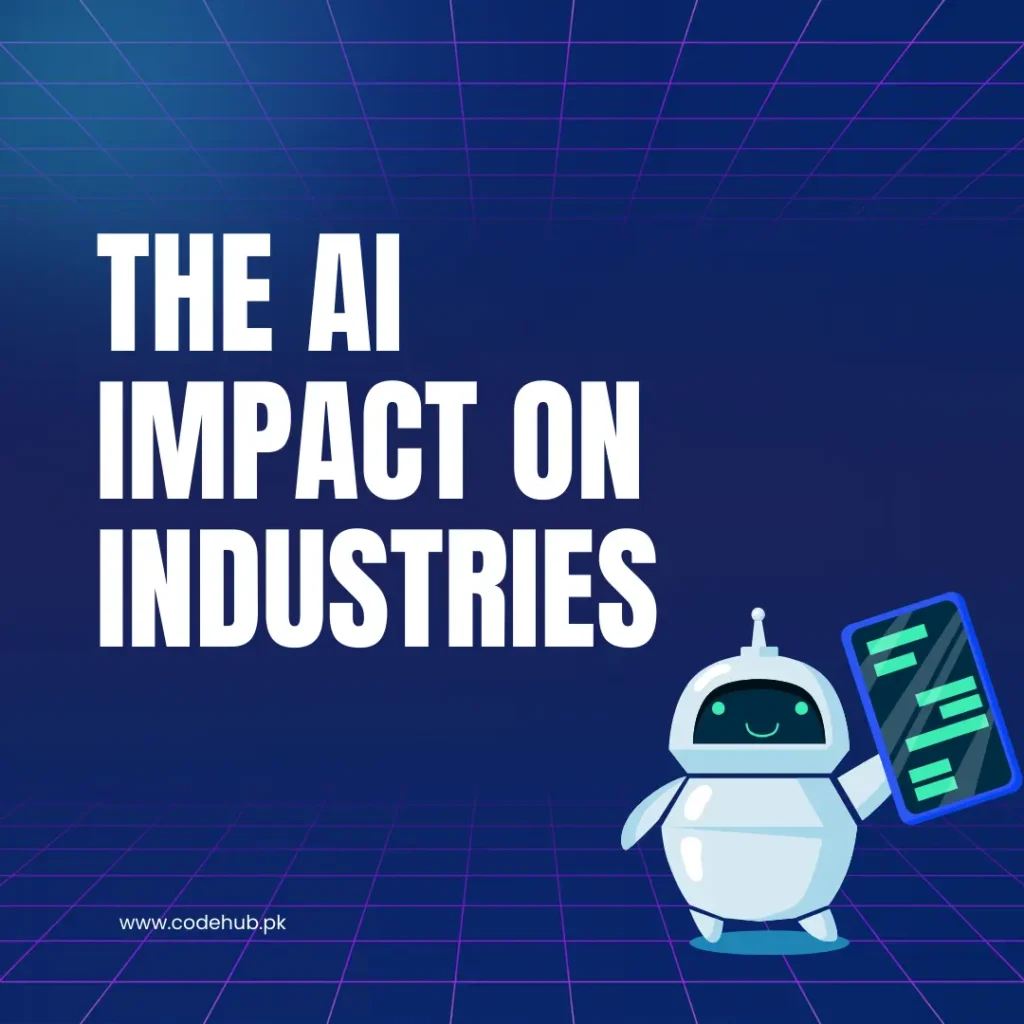Artificial intelligence is quickly becoming a revolutionary tool in the operational environment for most businesses today while presenting potential risks for managers. It is important for the business professional to know how different developments in AI are like the latest artificial intelligence trends known today. While changing the way patient care is delivered in the healthcare sector, to transforming economic sectors like financial services, and even improving learning in school, the AI affects on industries are significant and broad. In this piece, we’re going to explore numerous examples of how AI technologies are being deployed across different industries, and offer deep-dive analysis meant to help readers understand where this market is headed. Whether you’re an IT tech enthusiast or in industries where leadership focuses on the impacts of new technology, prepare to discover how AI is revolutionizing business as we know it.

Understanding Artificial Intelligence Trends
Evolution of AI Technologies
Machine learning evolved much over the past few decades starting from basically the rule based systems towards the more sophisticated AI technological models. The modern AI attempts to depend on stochastics and probabilistic methods; nevertheless, new innovations have been processed for neural nets and deep learning. Of the two, these innovations allow AI to deal with bigger data and understand patterns that were unfeasible to handle before. For instance, Natural Language Processing (NLP) has advanced in a big way, to enable AI to interpret and produce human language quite well. As for now, even such humanlike abilities as the image recognition are overtaken by computer vision systems. This change from the narrow form of AI, where an associated system outperforms in specific tasks only, to the incorporation of more general forms of AI is a prime example of the shift. For this reason, specialists argue that AI technologies will open new opportunities and issues in different industries and, for this reason, business leaders should be aware of AI trends.

Current AI Impact on Industries
The existing AI effects on industries are revolutionary, concerning significant shifts in different industries. AI is, therefore, improving the efficiency of services delivered to patients through the prediction of disease risk and tailored treatment methods. AI in heath care is also playing the role of drug discovery by breaking complex biological data in far much shorter time than conventional systems. In finance, it is reducing working time by processing paperwork, recognizing cases of fraud, delivering recommendations based on the analysis of historical data. In the learning segment they are also applying change through the concept of What New artificial intelligence in education, they give contents based on the contents of the students, enhancing result in education. These examples describe how AI is not some disrupting technology of the future, but the groundbreaking force already disrupting industries. With the advancement of AI extending further into these fields, they indicate the potential of availing higher effectiveness, creativity and growth by embracing these trends in Artificial Intelligence that will be imperative for the commercial success of businesses.

Future Predictions for AI Development
AI advancement for the future holds highly challenging innovations that can reforment entire sectors in the economy. AI specialists believe that its cognitive performance will increase still further, and the creation of artificial general intelligence may become possible in the future. This development can help build machines with faculties in understanding the context and decide independently in real-time environments. In the future, AI could not only help make a diagnosis but also be builders of complex surgical operations at the micron level. AI in finance is expected to develop with better mechanisms of analysis to estimate trends in the financial market and make more precise recommendations for investment. Future learning environments can include AI, which will make learning processes fully individualized and vary depending on a learner’s performance. At the same time, combining with different modern technologies like quantum, AI could raise the processing capability to a new level. These predictions clearly indicate a need for businesses to carry out constant analysis of artificial intelligence trends with the understanding that these will sooner or later disem fucking power over their industries.

AI’s Transformative Role in Key Sectors
AI in Healthcare: Innovations and Challenges
The application of AI has assumed a role as a pioneer in the avalanche of changes that are currently defining healthcare delivery and research. One major improvement is employing artificial neural networks for disease diagnosis at an early stage. These algorithms work through clinical info to detect disease risks before symptoms manifest themselves thus providing solutions. AI is also enhancing the adoption of the approach of producing medication that is unique to the patient and genetic variations. Moreover, operational surgical systems with the support of AI provide high accuracy and the shortest time for recovery. However, these are innovations that are associated with these challenges. Patient confidentiality turns out to be a major issue considering that AI systems depend on voluminous data of clients’’ health. Another challenging problem is reliability of the AL identified diseases and effects, as a mistake could lead to critical consequences. Furthermore, AI implementation, especially into already existing healthcare systems, means significant spending on acquisition and staff training. However, due to such challenges, individuals have not relented from embracing and investing in AI in healthcare respectively.

AI in Finance: Risk Management and Efficiency
AI in finance is revolutionizing how firms can deal with risk and work on the efficiency in their organizations. Sophisticated artificial intelligence has the ability to examine large amounts of data and study the correlations or lack of them, this is very important for a swindle check. Similarly, by forecasting what risks may occur, AI systems assist financial institutions to reduce their losses and make good decisions. In addition, AI technologies relieve labor or human resource through activities such as typing and organizing of data. This automation results in substantial savings on costs and faster execution of transactions. In the field of investment, artificial intelligence delivers some predictive analysis to highlight trends in the market and hence come up with actual predictions to be used by financial analysts in their investments. It has, however, created new problems as discussed below Starting with the fact that the decision-making of AI is depended on, new problems like the fairness and transparency of AI decision-makers. However, managing these risks and achieving the aimed benefits is the point, which will define the use of AI in finance. Over time, risk management and efficiency of the financial sector will see an increase in their adoption of AI technologies.

AI in Education: Personalized Learning Paths
AI in education is therefore presenting the world with customized educational paths that will best suit the learners. Based on the data collected from the students’ activity with the help of AI, one could evaluate a learner’s strong and weak sides to adapt the educational material. This customization allows students to move forward at the pace they want and do more exercises in areas that they recognized that they are learning deficient in. For instance, adaptive learning systems employ the use of AI to deliver practice materials appropriate to the learner’s preferred mode of learning and the topics that they have grasped or not grasped well. It not only increases the interaction of learners but also the result of education. Further, AI can give quick feedback to the students showing where they made a mistake, so they can improve it instantly. Imposing AI in education should also be carried out with caution to avoid(‘/’); The application of Artificial Intelligence in education; Nevertheless, the implementation of adaptive learning based on artificial intelligence holds considerable potential for redesigning conventional learning paradigms in a world of rising technology.

Strategies for Business Leaders
Leveraging AI for Competitive Advantage
The use of artificial intelligence as a competitive weapon is gradually emerging as a crucial model that enables business managers to think of how they can remain relevant in the markets in which they operate. Having AI technologies being implemented helps companies get more productivity, improves customers satisfaction and diversifies their products. For example, AI analytics in the workplace help in understanding consumer behavior better and hence market specific strategies and better customer treatment. Moreover, AI increases supply-chain responsiveness and reduces supply-chain costs through better demand oxygen and stock-control forecast. In new product development, AI shortens the time for new product experiments and proof of new ideas. Yet, to leverage AI, corporate managers need to focus on the proper training of the workforce for integrating them with the AI solutions. They also have to pay significant attention to the following factors: It also has to do with the ethics by which these applications have to be made available to the general public. Hence, the future belongs to those organizations that harness the powers of AI not as a differentiator, but as a way to build sustainable competitive advantage in a newly emerging digital economy.

Navigating Ethical Considerations in AI
Ethical dilemma related to AI is well understood by administrators if business executive who want to use the technology responsibly. This is because the decisions made by AI systems are becoming increasingly embedded in key decisions, there are emerging concerns with regard to data ownership, AI bias, and indeed responsibility. Data privacy requires protocols put in place so that unauthorized personnel cannot have access to certain information. There is also a proof that bias in algorithms that are used in businesses can cause staying or worsening of inequality if not corrected by the business leaders. This means that there needs to be constant checks and updates of these AI models to we make them more equitable. As well, integration of transparency in the operations of AI systems ensures that all its operations are well understood by the stakeholders and this can go a long way in making them have faith in the systems. Managing organizational risk in AI is also critical, and that includes identifying the level of accountability regarding implementation results from the use of the technology. Hoping that such considerations will be embraced by business leaders and policymakers alike, the paper outlines the main ethical concerns addressed in this study as follows: By being proactive on these ethical aspects, business leaders do not only minimize potential future risks but also improve their organisation’s image and gain trust from the public − thus leading to a more responsible and sustainable use of technologies infused with AI.

Preparing Your Workforce for AI Integration
That is why it is important to ideologically prepare your workforce seize the opportunities from the deployment of ubiquitous AI technologies. When AI takes over most of these tasks, employees will be forced to change their mode of operation and work on new complex tasks that require AI. Managing directors need to include training in the importance of analytical tools, machine learning, and ethic in emerging business sectors into their companies. Savvy employers can allow their employees to access training materials and workshops, as well as online courses and information about AI, which in turn will enable employees to adopt AI tools as a normal thing. Thus, by promoting learning organization, it is possible to ensure that the modifications in the structure of the workforce will reflect the changes introduced by technology. Furthermore, integrating cooperation between AI systems and people employed in the organizations can bring benefits and improve overall efficiency. It also includes calling attention to augmenting strengths of AI and human intelligence, thus enabling employees to work on high-level and tangible jobs. Business executives should avow the workforce development approach to make sure that AI technology is the enabler instead of the disruptor for the enterprise in the long-run.


